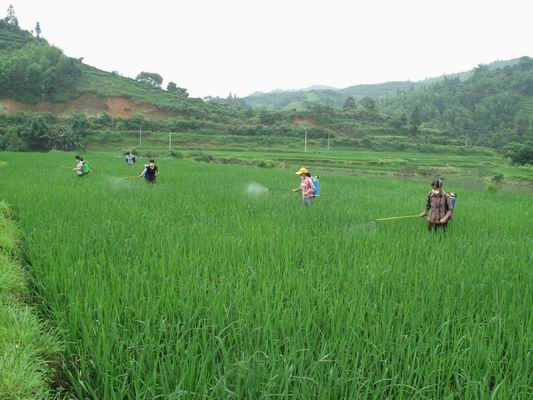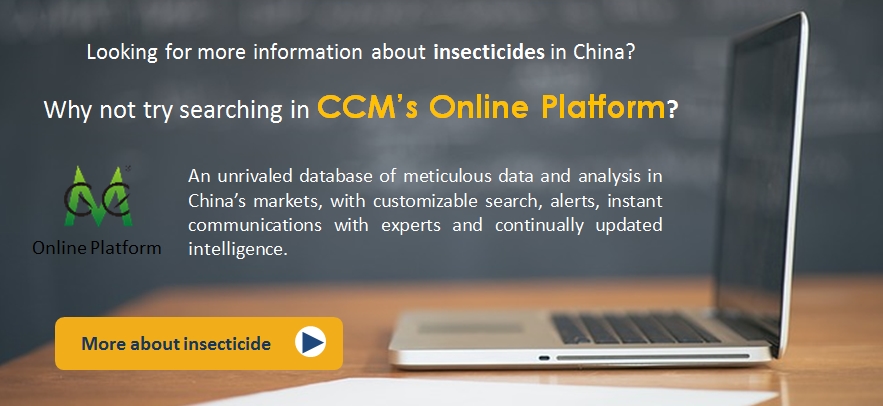On 20 Oct., 2016, Zhai Qing, deputy
director of the Ministry of Environmental Protection of the People's Republic
of China (MEP), confirmed that a total ten inspection groups would be assigned
to urge provincial governments and environmental protection departments to
implement environmental regulations and in the meantime, to ensure punishments
for breaching related rules. This inspection started the next day (21 Oct.) and
was conducted in 20 provinces / municipalities / autonomous regions, including
Tianjin, Hebei, Shanxi, Inner Mongolia, Laioning, Anhui, Fujian, Jiangxi,
Shandong, Henan, Hubei, Hunan, Guangdong, Hainan, Sichuan, Yunnan, Shaanxi,
Gansu, Qinghai and Xinjiang.

Source: Baidu
In fact, the environmental inspection
system was first officially established by the Environmental Protection
Inspection Plan (Trial) approved by the 14th session of the Central Leading
Group for Comprehensively Continuing Reform in July 2015. Accordingly, the
central government would assign groups of inspectors to conduct related
investigations into environmental regulations implemented by the provincial or
even city-level governments and relevant departments.
Environmental inspection has been
prioritised on the MEP’s agendas in 2016. Early this year, pilot inspections
were conducted in Hebei. In mid-July, the first group of inspectors carried out
stringent regulation towards enterprises in Inner Mongolia, Heilongjiang,
Jiangsu, Jiangxi, Heinan, Guangxi, Yunnan and Ningxia. The inspection continued
on in Sichuan and Hubei in mid-Sept. and was further expanded this time in Oct.
This large-scale national environmental
inspection may affect the domestic prices of most chemicals, especially
pesticides. Most important pesticide producing provinces were covered this
time, including Shandong, Henan, Hubei, Anhui, Sichuan, Hebei, Inner Mongolia,
Jiangxi, Hunan, Guangdong and Fujian. All these provinces were among the top 15
pesticide producing provinces in Jan.-Aug. 2016, whose output totaled around
1.44 million tonnes, 57.78% of the national total.
Given this, the pesticide business may be
seriously influenced – lowering operating rate, tightening supply of raw
materials, increasing environmental costs, reducing overall output, all of
which are driving forces behind possible rises in pesticide prices. It is
expected that the Chinese pesticide market will transition to an upturn in the
near future.

Notably, the previous environmental
inspection this year has already boosted prices of many pesticides. Rises in
prices of pesticide technical has become a trend in the domestic market. For
instance, the long-depressed chlorpyrifos price finally rebounded slightly in
Sept. 2016, thanks to the increased price of intermediates. Badly affected by
the national environmental inspection, most producers of chlorpyrifos TC intermediates
had to cut down their production, leading to declined market supply and
increased price. Moreover, just a few chlorpyrifos TC manufacturers realised
self-supply of intermediates. In this context, many chlorpyrifos producers
raised their quotations.
The state had in fact required in-depth and
continuous environmental inspection early when the first groups of inspectors
were dispatched this year. As the national environmental regulation gets
increasingly stringent, it noteworthy how the domestic pesticide manufacturers
will cope with the coming challenges.
Top 25 pesticide producing
provinces in China, 2015 & Jan.-Aug. 2016
|
No.
|
2015
|
Jan.-Aug. 2016
|
|
Province/ municipality/
autonomous region
|
Output, 000' tonne
|
Province/ municipality/
autonomous region
|
Output, 000' tonne
|
|
1
|
Jiangsu
|
1055.3
|
Jiangsu
|
774.7
|
|
2
|
Shandong
|
1000.4
|
Shandong
|
621.5
|
|
3
|
Henan
|
324.0
|
Zhejiang
|
192.5
|
|
4
|
Zhejiang
|
279.3
|
Henan
|
191.9
|
|
5
|
Hubei
|
253.9
|
Hubei
|
159.7
|
|
6
|
Anhui
|
197.7
|
Anhui
|
121.9
|
|
7
|
Sichuan
|
178.1
|
Sichuan
|
121.6
|
|
8
|
Inner Mongolia
|
77.7
|
Hebei
|
53.8
|
|
9
|
Hebei
|
75.5
|
Inner Mongolia
|
43.6
|
|
10
|
Hunan
|
51.4
|
Jiangxi
|
35.0
|
|
11
|
Jiangxi
|
50.9
|
Hunan
|
33.9
|
|
12
|
Fujian
|
44.9
|
Guangdong
|
33.5
|
|
13
|
Guangdong
|
43.2
|
Fujian
|
23.6
|
|
14
|
Jilin
|
23.1
|
Jilin
|
21.0
|
|
15
|
Ningxia
|
19.1
|
Ningxia
|
17.5
|
|
16
|
Liaoning
|
12.9
|
Chongqing
|
8.5
|
|
17
|
Guangxi
|
10.5
|
Shanghai
|
8.2
|
|
18
|
Chongqing
|
10.5
|
Liaoning
|
7.8
|
|
19
|
Shanghai
|
10.4
|
Tianjin
|
6.8
|
|
20
|
Tianjin
|
9.2
|
Shaanxi
|
4.8
|
|
21
|
Shaanxi
|
5.6
|
Guangxi
|
3.9
|
|
22
|
Gansu
|
3.2
|
Gansu
|
3.3
|
|
23
|
Guizhou
|
2.3
|
Guizhou
|
1.7
|
|
24
|
Heilongjiang
|
1.3
|
Heilongjiang
|
0.6
|
|
25
|
Shanxi
|
0.6
|
Shanxi
|
0.3
|
Source: National Bureau of
Statistics of the People's Republic of China
Top 10 producing provinces of fungicides /
insecticides / herbicides in China, Jan.-Aug. 2016
|
No.
|
Fungicide
|
Insecticide
|
Herbicide
|
|
Province/ municipality/ autonomous region
|
Output, 000' tonne
|
Province/ municipality/ autonomous region
|
Output, 000' tonne
|
Province/ municipality/ autonomous region
|
Output, 000' tonne
|
|
1
|
Jiangsu
|
55.9
|
Jiangsu
|
142.9
|
Shandong
|
453.3
|
|
2
|
Anhui
|
26.6
|
Shandong
|
44.4
|
Jiangsu
|
321.4
|
|
3
|
Zhejiang
|
15.2
|
Hunan
|
24.4
|
Hubei
|
121.4
|
|
4
|
Ningxia
|
4.7
|
Hubei
|
17.4
|
Sichuan
|
99.3
|
|
5
|
Shaanxi
|
3.6
|
Zhejiang
|
16.8
|
Zhejiang
|
93.3
|
|
6
|
Sichuan
|
3.5
|
Anhui
|
13.0
|
Anhui
|
47.3
|
|
7
|
Shandong
|
3.0
|
Jiangxi
|
11.0
|
Inner Mongolia
|
42.6
|
|
8
|
Shanghai
|
2.6
|
Chongqing
|
6.4
|
Guangdong
|
15.0
|
|
9
|
Jiangxi
|
2.6
|
Guangxi
|
3.9
|
Henan
|
14.2
|
|
10
|
Fujian
|
2.4
|
Shanghai
|
3.7
|
Hebei
|
8.9
|
Source: National Bureau of Statistics of
the People's Republic of China
This article comes
from Insecticides China News 1610, CCM

About CCM:
CCM is the leading market intelligence provider for China’s
agriculture, chemicals, food & ingredients and life science markets. Founded in 2001, CCM offers a
range of data and content solutions, from price and trade data to industry
newsletters and customized market research reports. Our clients include Monsanto,
DuPont, Shell, Bayer, and Syngenta. CCM is a brand of Kcomber Inc.
For more information about
CCM, please visit www.cnchemicals.com or get in touch with us directly by emailing econtact@cnchemicals.com or calling +86-20-37616606.
Tag: pesticides insecticides